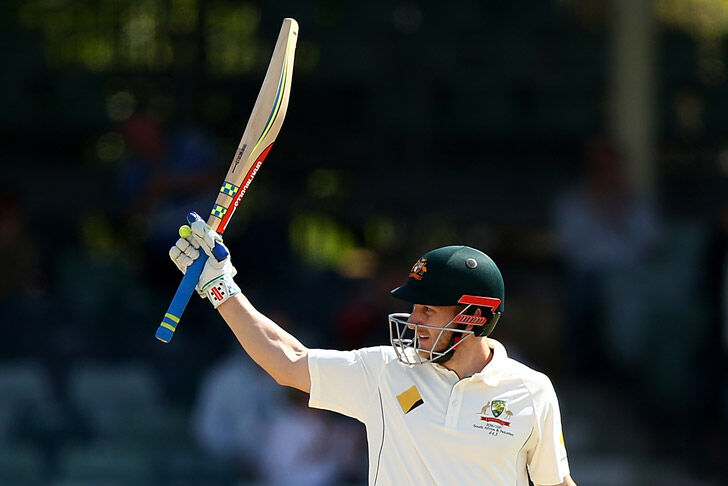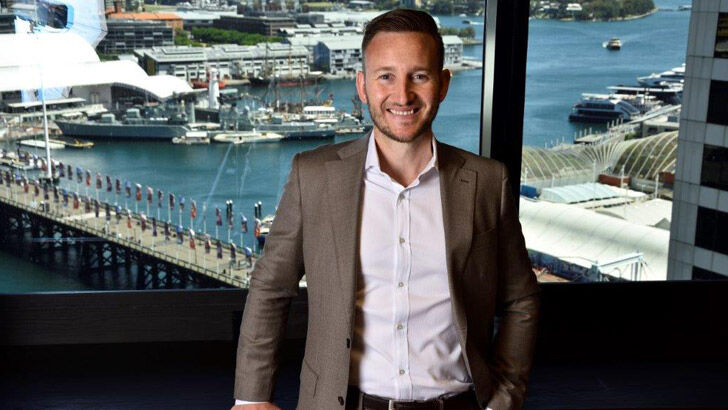Money lessons from a cricketer turned financial adviser
By Tom Watson
When professional athletes retire it's not unusual to hear about them making the transition to adjacent roles in the media or coaching. But that wasn't the path for former wicketkeeper Peter Nevill.
Following a 15-year career in cricket which included 17 Tests for Australia and a long-running stint as captain of New South Wales, Nevill hung up his gloves in 2022 and started his second career as a financial advisor at Pitcher Partners last year.
Nevill recently spoke to Money about his cricketing life, the path that led him to his new career in advice and the financial lessons he's learned along the way.
1. Were you destined to play cricket professionally?
"Not really. Like many young kids growing up in Australia I loved watching cricket on TV and would drag my parents out the front to hit balls.
"When I started playing I adored the game, but in all the junior competitions I was never very good at it until I got to that under 13s, under 15s age when I started being one of the better players in the group.
"I always knew in the back of my mind that this was never a sure thing. And when I did start playing professionally, I really understood how fickle it can be.
"Even the best players are one injury away from their career being over, so I always had the idea in the back of my mind that I needed something other than just sport.
"So I was always studying or doing work placements while I was playing, and eventually when I knew exactly what I wanted to do I did a Master of Financial Planning while I was still playing.
"I'm fortunate that I had a long enough career that I was able to put those sort of steps in place to ensure I had somewhere to land when I was ready."
2. What sparked your initial interest in finance?
"At the start of my career I had an opportunity to play for New South Wales when Brad Haddin started playing for Australia full-time.
"I didn't do particularly well in my first season of a two-year contract though, and coming to the end of my second season I had this moment when I realised I really needed to pull my finger out and get a better handle on my finances because I had nothing in reserve should I get sacked in a couple of months.
"Fortunately things went my way and I was able to do really well at the back end of that season and then my career took off from there. But from that moment on I really had an appreciation of personal finance and investing.
"So that's when my journey and interest in the space began as a 22-year-old, and I quickly grew to be fascinated by it and - much to my wife's dismay - that continues to be the case."

3. What was the most useful financial advice you picked up while playing?
"There was always a group within the cricket squad who were really passionate about investing and were always wanting to talk about it, and I think one of the little nuggets that stuck with me was to spend less than you earn and borrow less than you can afford.
"Then adding a little bit to that, continuing to invest and allowing that to compound over time.
"I think where people get stuck is that their thinking is too short-term where they may want to have an amount of money in a couple of years' time when, realistically, having a really long timeframe is everybody's best friend.
"And the longer the timeframe, the narrower the range of outcomes and the more likely you are to get performance that's in line with historical averages."
4. Do cricketers get enough financial guidance and support?
"They do provide those types of things - whether it's Cricket Australia or the Australian Cricketers Association. So there's a lot of that available.
"I think you can only lead a horse to water though. No matter how much you want to drive home the importance of it and the difference it can make in your life, it takes a bit to cut through and actually get a response from some people."

5. Were you ever drawn to a career in media or coaching?
"I don't know why, but I always had the idea in the back of my mind that when I finished playing I didn't want to stay in sport - whether that was administration, or commentary, or coaching. I always wanted to have something outside of that.
"When I was playing, I always really enjoyed just doing something completely unrelated to sport like studying or playing guitar that enabled me to direct my attention elsewhere. I saw that it can be quite counterproductive for some people when they're away on tour and all they think about is the game."
6. How has cricket helped you as an advisor?
"What I found really useful to take away from cricket was understanding that your performance can be incredibly volatile over time. You can make 100 runs one week and be out for a duck the next, and then end up sitting there and stewing over it for a very long time.
"The most successful people were those that were able to remain emotionally level. So having a temperament where you're not getting too overwhelmed when things are going badly or too far ahead of yourself when things are going well, and understanding that if you have a repeatable process that works, performance will come over time.
"So the temperament piece is important and it really relates to investments and the volatility in markets. If history teaches us anything it's that there are always slumps, but things may not be as bad as they seem at the time, so it can be important to have the confidence to be able to start deploying capital when markets are presenting really good buying opportunities."
Get stories like this in our newsletters.



